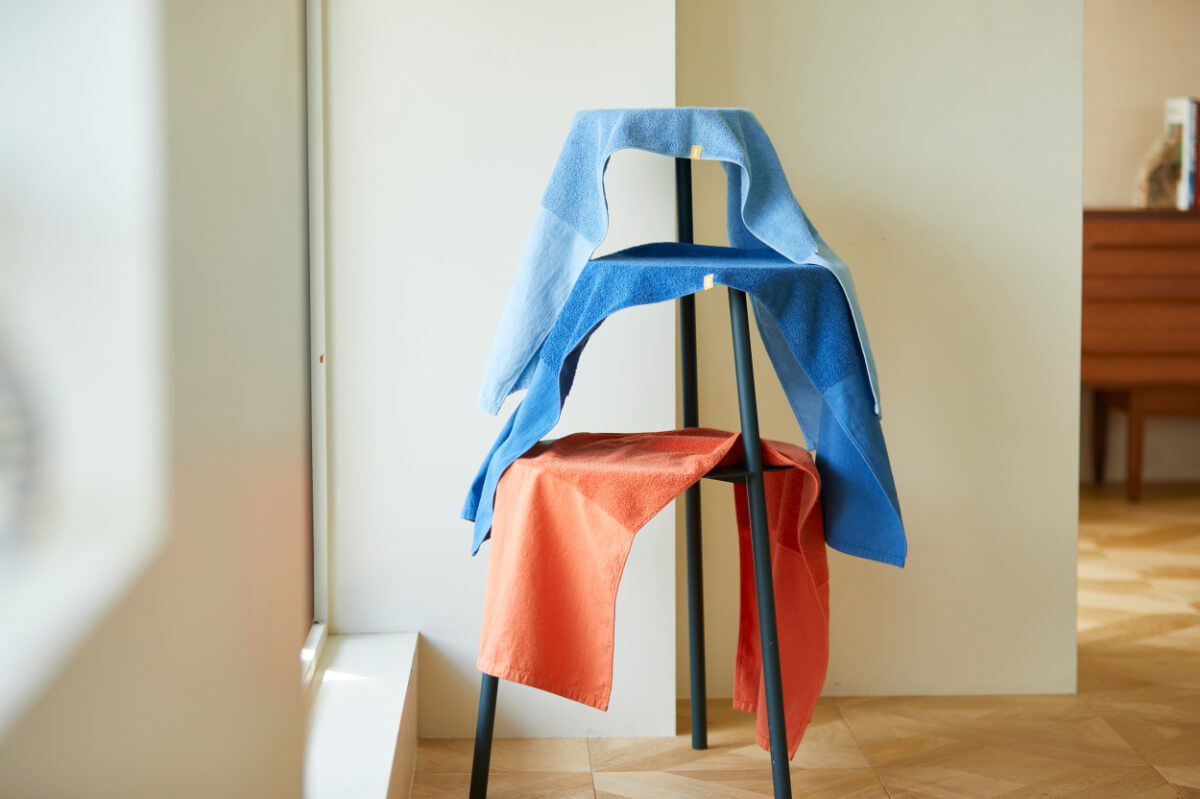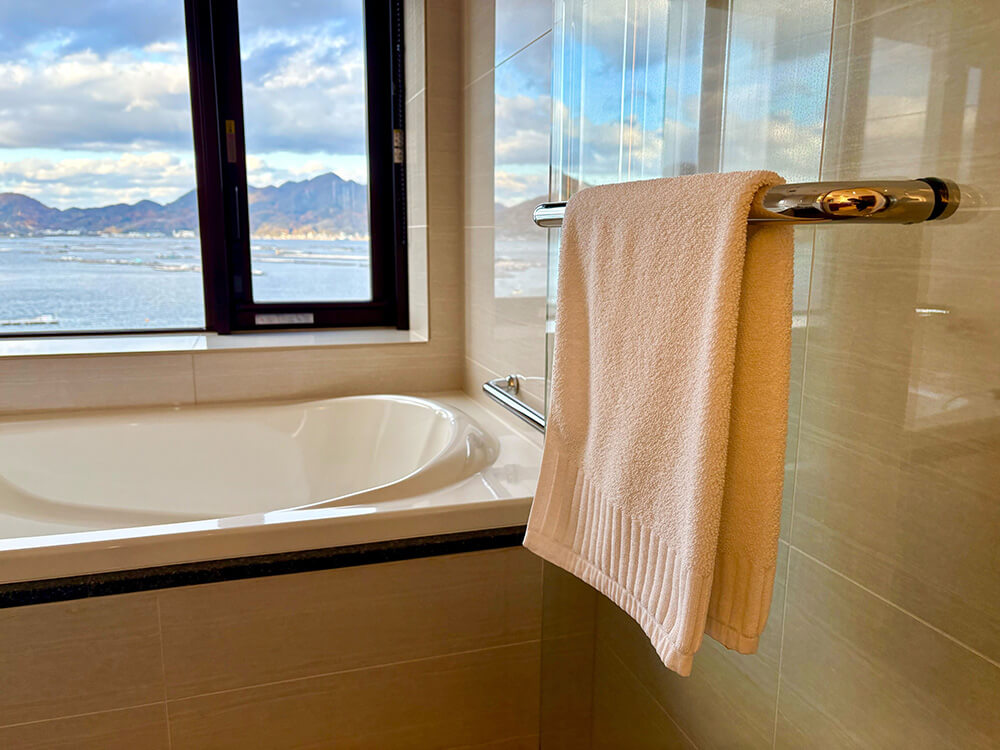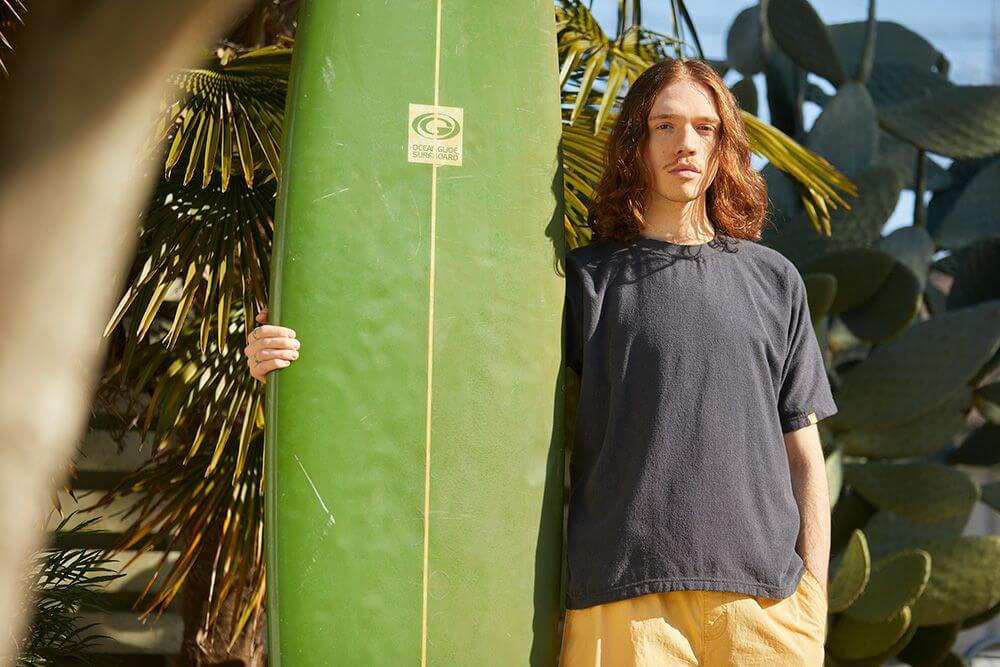1953年創業、今治タオルの専門店IKEUCHI ORGANICのスタッフが、商品のご紹介や日々の洗濯、お手入れ、メンテンナンス方法などタオルのお役立ち情報のほか、オーガニックコットンの生産現場や今治本社工場での環境に配慮した取り組みなど、ものづくりの背景をコラムでご紹介しています。
What is Imabari Towel?
2022.11.29
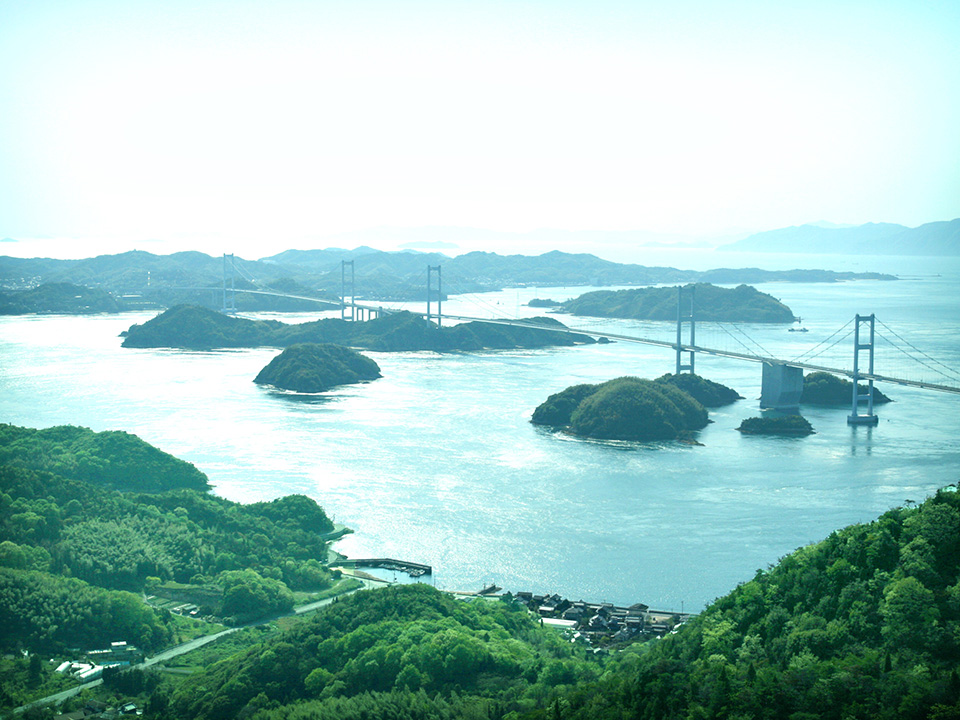
Table of Contents
History of Imabari Towel
Imabari Towel is the general name for towels manufactured in Imabari City, Ehime Prefecture. The history of Imabari Towel is surprisingly old, dating back to the Meiji Era (1868-1912), and has been produced for more than 120 years. The land’s location on the Seto Inland Sea, which was a transportation hub with many people coming and going, promoted innovation in weaving machines and improved techniques.
Although heavily damaged by air raids during the war, the area grew steadily as a production center. In 1960, Imabari’s toweling became a big hit, and Imabari surpassed Osaka as the largest towel production area in Japan in terms of volume.
Why Imabari developed as a towel production area
Imabari has long flourished as one of Japan’s leading towel production centers because of the land’s favorable natural conditions that make it possible to produce towels. Towels use a large amount of water in the production process, including bleaching, dyeing, and washing. The properties of the water are extremely important for towels, and soft water with few impurities is required.
Imabari is blessed with subsoil water from the Sosha River, which originates in the Takanawa Mountains adjacent to Mt. Ishizuchi. Because this subsoil water contains few impurities, it stabilizes whiteness and brings out the natural softness of the cotton in the processing process.
What is Imabari Towel?
Today, there are many towel manufacturers in Imabari City, each of which continues to produce towels with their own commitment and unique know-how. Among them, the Imabari Towel Brand is managed by 103 companies (as of 2021) that are members of the Imabari Towel Manufacturers Association. The brand is marked by the Hinomaru (Japanese flag) mark floating in the sea, which promises to be a world-class, high-quality Japanese towel. 2006 saw the start of a brand renewal, and while the initial recognition rate was around 40%, today approximately 90% of respondents say they are aware of the Imabari towel brand.
Now that the awareness of the Imabari towel brand has increased, a number of towel makers have started to carry their own brands. In Tokyo, stores of Imabari towel makers have been opened one after another in the Omotesando area.
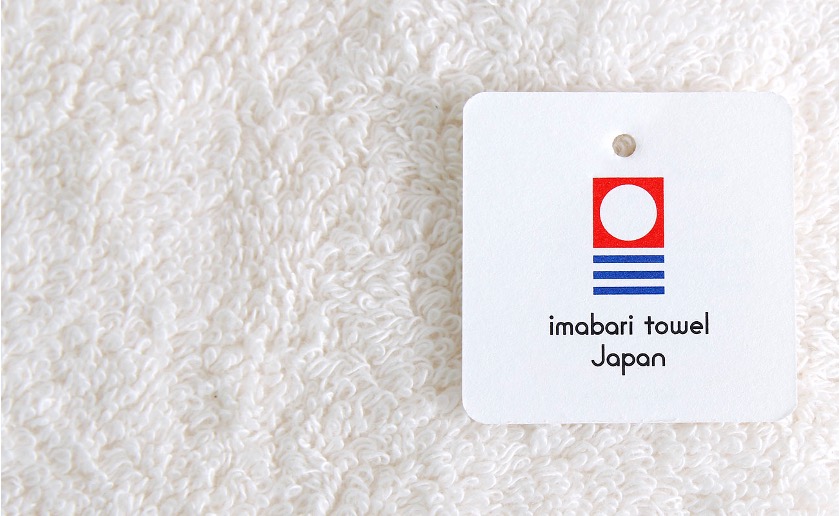
What are Imabari Towel Certified Products?
Not all towels manufactured in Imabari are “Imabari Towel Brand Certified Products”. Even if it says “Made in Imabari”, it is not a certified Imabari Towel product unless it has passed the certification test of Imabari Towel. Only products that have passed the examination of the Imabari Towel Manufacturers Association can call themselves “Imabari Towel Brand Certified Products”. The most famous criterion is the “5-second rule,” or the examination of water absorbency. A towel is cut into 1 cm squares, floated in water, and if it sinks within 5 seconds, it passes the test. A towel must pass both an “unwashed” and a “washed three times” test before it can pass the water absorbency test.
In addition, there are a total of 12 other criteria, including shedding rate (minimal shedding), pile retention (resistance to shedding even when caught), lightfastness (resistance to color fading), and dimensional change rate (resistance to shrinkage).
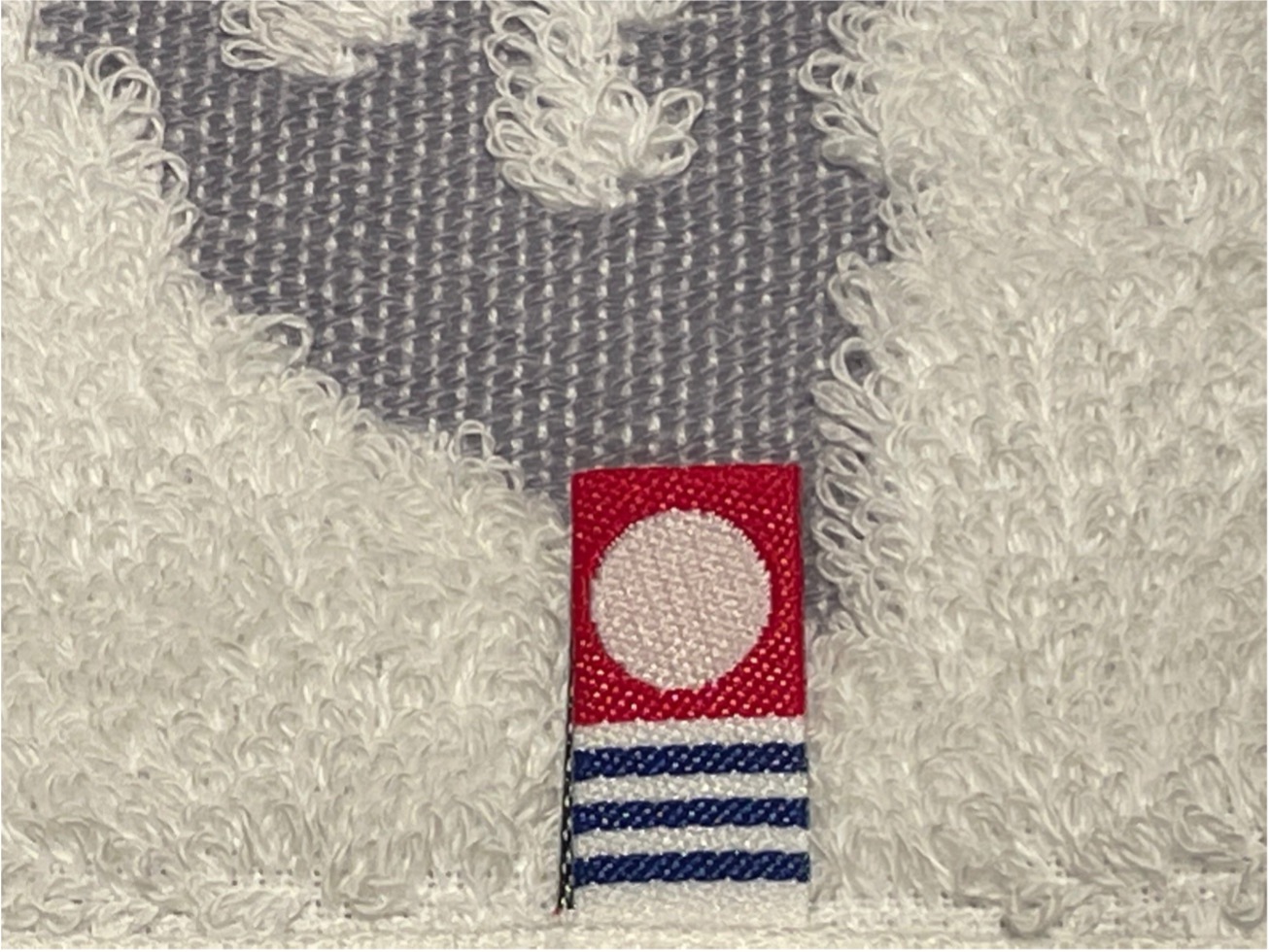
How do I find out which company makes the Imabari Towel?
There are not one, but 103 companies that make Imabari towels, and there is a way to determine which company made them. Actually, there is a four-digit number on the back of the tag. The Imabari Towel Manufacturers Association’s website has a list of the association’s companies and their numbers, so by comparing them with the four-digit number, you can find out which company manufactured the towels.
IKEUCHI ORGANIC’s union number is 0705. Please try to find out which company made your favorite Imabari towel at home by using the number on the tag of the Imabari towel you have at hand.
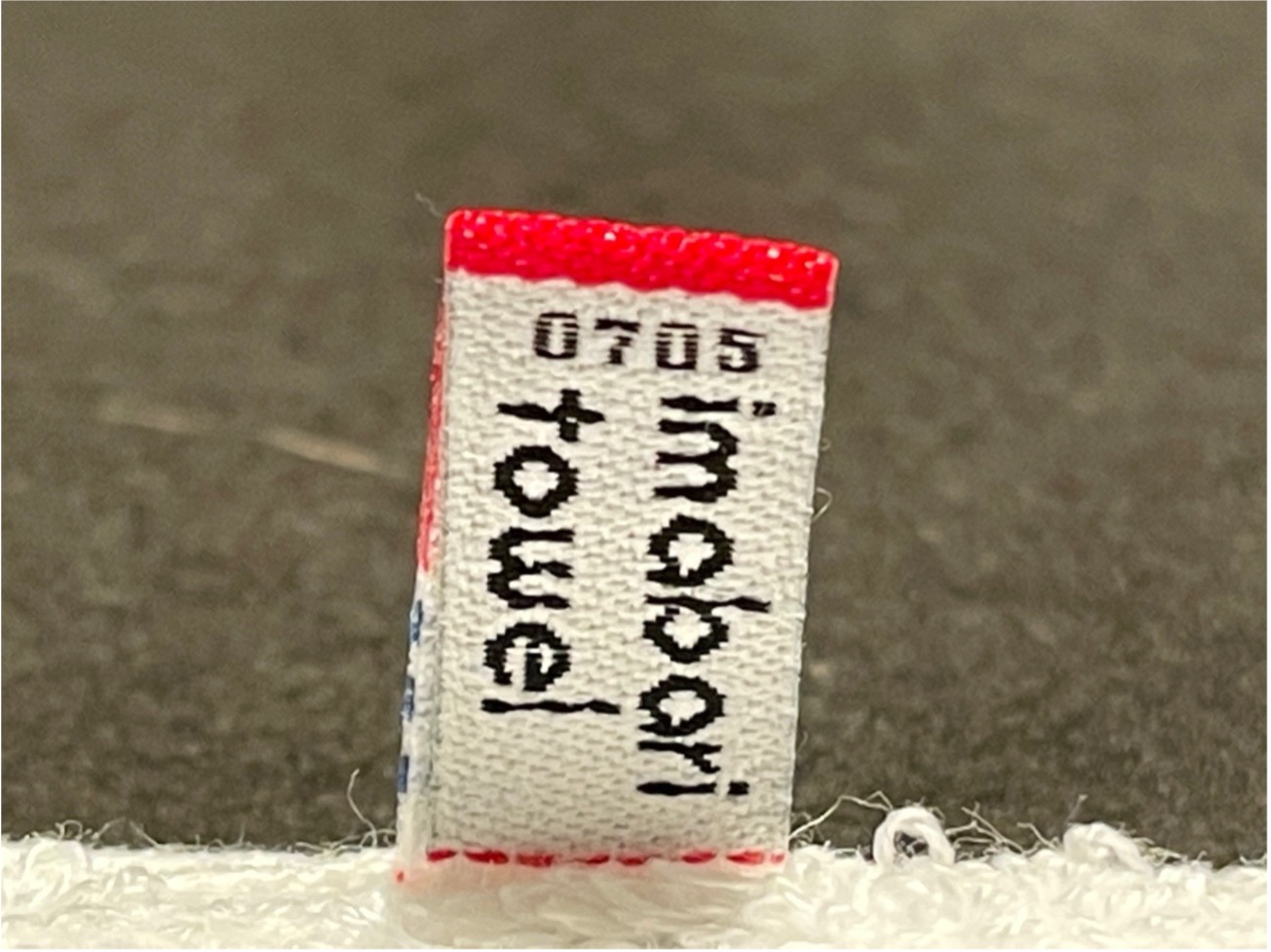
Why IKEUCHI ORGANIC does not put a tag on Imabari towels
If you find extremely low-priced towels sold as Imabari towels, you should first check to see if they have a tag. If you find extremely inexpensive towels sold as Imabari towels, it is a good idea to first check whether they have tags or not. One of the criteria to identify a good towel is whether or not it has an Imabari Towel Certification Tag, which was designed by Kashiwa Sato with an image of red (the sun) and blue (the sea) on a white background.
However, to complicate matters a bit, there are towels that do not bear the tag even if they meet the standards for Imabari towel certification. For example, IKEUCHI ORGANIC’s original brand products do not wear the Imabari towel tag on their products. Of course, many of our standard products have acquired the Imabari Towel Certification. There is a reason for this.
Our company philosophy is “maximum safety and minimum environmental impact,” and we are a company that aims to make towels that babies can eat by 2073, the 120th anniversary of our founding. Over the past 60 years, we have been able to obtain the Oeko-Tex Standard Class 1, an international certification from Switzerland that makes our products safe for babies to eat. To obtain this certification, we had to be particular about even the material of the tags. In fact, IKEUCHI ORGANIC’s yellow brand tag is made of organic cotton, and when we changed our company name from Ikeuchi Towel to IKEUCHI ORGANIC in 2014, the name tag was also changed to organic cotton. Unfortunately, the Imabari Towel certified name tag is made of polyester, and we have unfortunately quit attaching it.
Of course, please be assured that the absence of the tag does not mean that the towel does not meet Imabari Towel’s certification standards. Many of our standard products have undergone and cleared the Imabari Towel Certification examination. IKEUCHI ORGANIC representative Keiji Ikeuchi says, “Standards are not the end of the process once they are set, but we have to improve the quality year after year. That is why we have to raise the quality and safety standards of our towels ourselves,” he says.
Towel Sommelier System
We want our customers to better understand the quality of Imabari towels. The “Towel Sommelier Qualification Examination System” was launched in conjunction with the renewal of the Imabari Towel brand. Now that people are increasingly interested in the daily necessities they use in their homes, it is not easy for a single person to choose the right towel for them, as there are nearly 20 types of IKEUCHI ORGANIC’s standard towels alone.
At such times, it is the Towel Sommelier who suggests the best towel for the customer. since its establishment in 2007, more than 3,000 people have now passed the exam as Towel Sommelier, and in recent years, some of our customers have taken the exam as well.
Imabari Towel is a generic name for a regional brand made by not one but as many as 100 manufacturers, and each manufacturer has various characteristics. We, of course, encourage you to visit the websites and stores of the various Imabari towel makers and ask the staff about their various features.
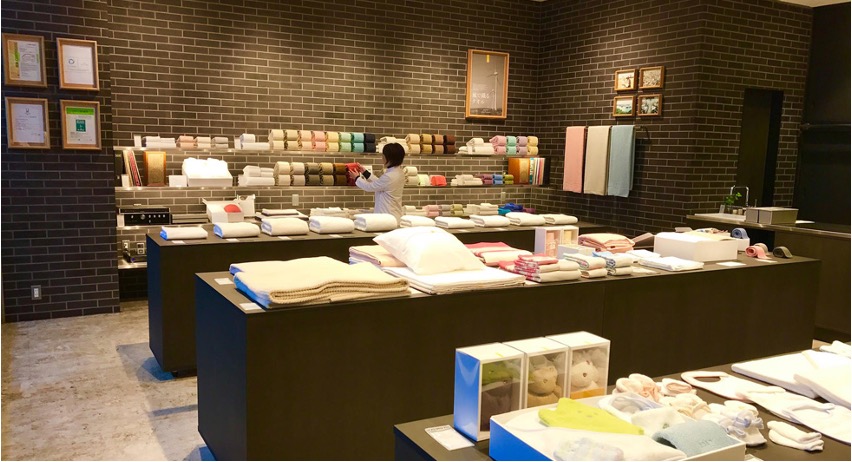
IKEUCHI ORGANIC’s website offers content on how to choose towels, and you can also consult with our staff on towel selection and towel gifts through online chat and the contact page.
IKEUCHI ORGANIC’s directly-managed stores (Omotesando, Kyoto, and Imabari) have staff certified as towel sommeliers. Our staff will be happy to suggest towels that meet your needs and they are all full of towel love. Please visit our directly-managed stores.
If you are interested in IKEUCHI ORGANIC, please read the article “20 years of IKEUCHI and ORGANIC ” which is developed in IKEUCHI ORGANIC official NOTE.
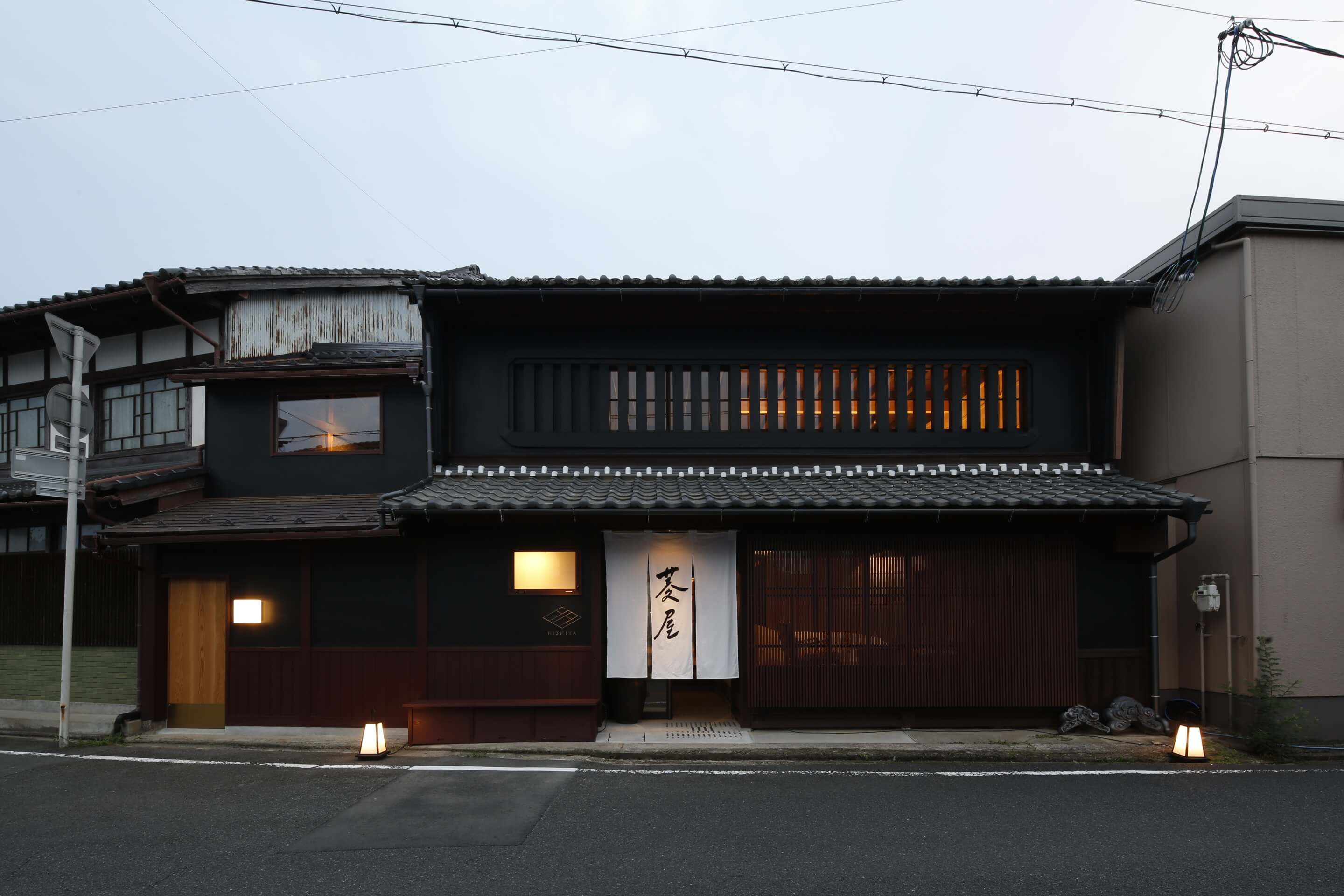
Article written by
イケウチオーガニック


